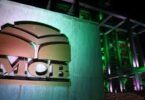DUBAI (Agencies): Emirates Islamic, belonging to Emirates NBD Group, is gaining traction in asset growth, profitability and asset quality, thanks to strong demand for Islamic banking services, a sharply focused retail strategy, and innovative digital offerings, Wasim Saifi, Deputy CEO for Consumer Banking and Wealth Management said.
In the first quarter of 2019, the bank reported a net profit of Dh411 million, an increase of 97 per cent year-on-year and 54 per cent quarter-on-quarter, for the highest ever quarterly net profit since inception in 2004.
The bank attributes its strong performance in a relatively challenging economic environment to continuing improvement in cost of risk, healthy balance sheet, stable credit quality and better liquidity. The financial results of past few quarters prove the bank has come a long way from the days of deleveraging and low profitability in 2016-17 to strong balance sheet growth, higher funded income, growth in fee income and lower provisions.
“We see enormous potential for the growth of Islamic banking in coming years, both worldwide and in the UAE. In the UAE, demand for Islamic banking products and services continues to grow, and we are seeing more uptake among both Muslim and non-Muslim consumers,” said Saifi.
Islamic banking continues to gain traction in the UAE market, going from a single-digit market share to over 20 per cent and growing. In the last 12 months, conventional banks’ total assets saw a growth rate of 4-4.5 per cent while Islamic players have been growing at 7 per cent.
The UAE remains a promising avenue for the growth of Islamic banking and finance, particularly given the substantial market share held by Islamic lenders in other core markets. For instance, in Malaysia, the share of Islamic banking is about 25-26 per cent, and in Kuwait it is about 40 per cent. This figure becomes significantly higher in Saudi Arabia at upwards of 50 per cent.
In the UAE, Islamic banking penetration is expected to cross 25 per cent in coming years.
One key factor driving the growth of the sector is a growing preference for Sharia-compliant products and services. Another driver is that Islamic banks are catching up to their conventional counterparts in terms of product offerings, service quality and digital capabilities, making it easier for customers to make the switch.
“We see that Islamic banks are making significant progress in terms of transforming consumer perceptions as well as enhancing overall customer experience and proposition,” said Saifi.






